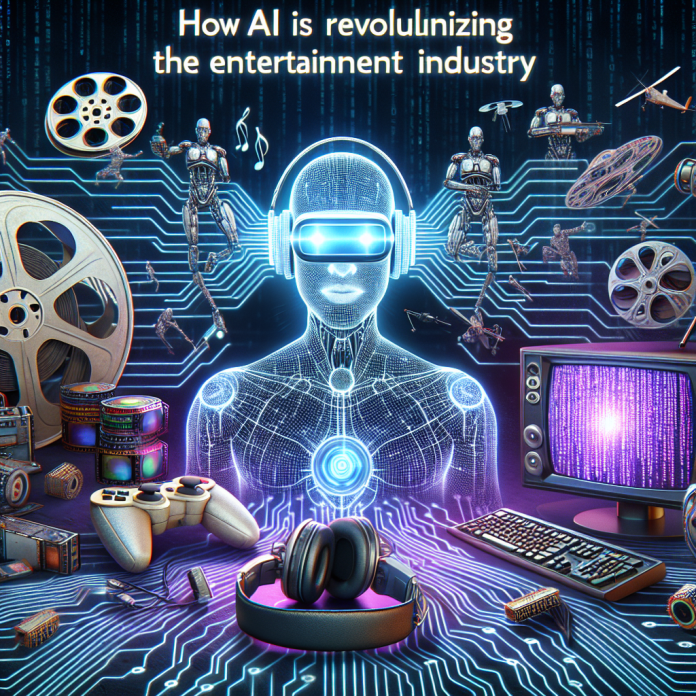Artificial Intelligence in the Entertainment Sphere
In recent years, Artificial Intelligence (AI) has been making waves across various industries, revolutionizing the way things are done. The entertainment sphere is no exception, as AI continues to play a significant role in shaping the way we consume and create content. From personalized recommendations on streaming platforms to the use of AI in the creation of music and films, the possibilities of AI in entertainment are endless.
**AI in Personalized Recommendations**
One of the most common ways AI is used in the entertainment sphere is through personalized recommendations. Streaming platforms like Netflix and Spotify use AI algorithms to analyze users’ viewing or listening habits and provide recommendations based on their preferences. These algorithms take into account factors such as genre preferences, viewing history, and user ratings to suggest content that users are likely to enjoy.
For example, Netflix’s recommendation system uses a combination of collaborative filtering and content-based filtering to create personalized recommendations for each user. Collaborative filtering looks at the viewing habits of similar users to make recommendations, while content-based filtering analyzes the characteristics of the content itself to suggest similar titles.
**AI in Content Creation**
AI is also playing a role in content creation in the entertainment industry. From music composition to scriptwriting, AI has the potential to revolutionize the creative process. For example, companies like Amper Music are using AI algorithms to compose original music tracks for use in films, video games, and other media. These algorithms can analyze the mood and tone of a scene and generate music that matches the desired atmosphere.
Similarly, AI has been used to generate scripts for short films and commercials. Companies like Scriptbook use AI algorithms to analyze the content of scripts and predict how successful they will be based on factors like plot structure, character development, and dialogue. This can help filmmakers and producers make informed decisions about which projects to pursue.
**AI in Visual Effects**
In the world of visual effects, AI is also making an impact. AI algorithms can be used to enhance and streamline the visual effects process, making it faster and more efficient. For example, AI-powered tools like DeepDream and DeepArt allow artists to create complex visual effects with minimal manual input. These tools can generate realistic textures, lighting effects, and animations, saving artists time and resources.
Additionally, AI can be used to improve the quality of visual effects in films and TV shows. Companies like NVIDIA are developing AI-powered systems that can generate photorealistic images and animations, taking visual effects to a whole new level of realism.
**Challenges and Ethical Considerations**
While AI has the potential to transform the entertainment industry, it also raises a number of challenges and ethical considerations. One of the biggest concerns is the potential for AI to replace human creativity and talent. As AI algorithms become more advanced, there is a risk that they could automate tasks that were previously done by human artists, writers, and musicians.
There are also concerns about bias in AI algorithms. Because AI learns from data, it can perpetuate and amplify biases that exist in society. For example, if a recommendation algorithm is trained on data that is biased towards certain genres or demographics, it may not accurately reflect the diverse preferences of users.
**The Future of AI in Entertainment**
Despite these challenges, the future of AI in the entertainment industry looks promising. As AI technology continues to advance, we can expect to see even more innovative applications of AI in content creation, personalized recommendations, and visual effects. AI has the potential to revolutionize the way we consume and create entertainment, making it more personalized, efficient, and immersive than ever before.
In conclusion, AI is set to play an increasingly important role in the entertainment sphere, from personalized recommendations to content creation and visual effects. While there are challenges and ethical considerations to address, the potential benefits of AI in entertainment are immense. As AI technology continues to evolve, we can expect to see even more exciting and innovative applications of AI in the entertainment industry.

